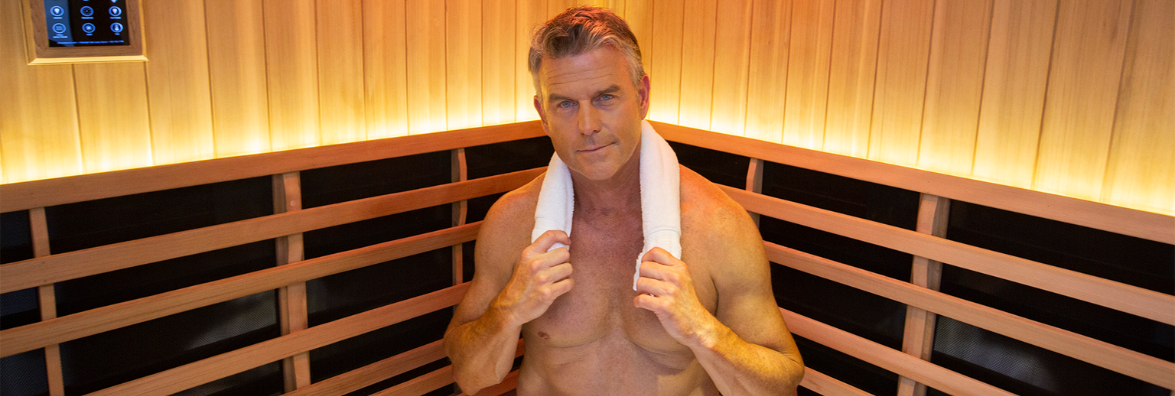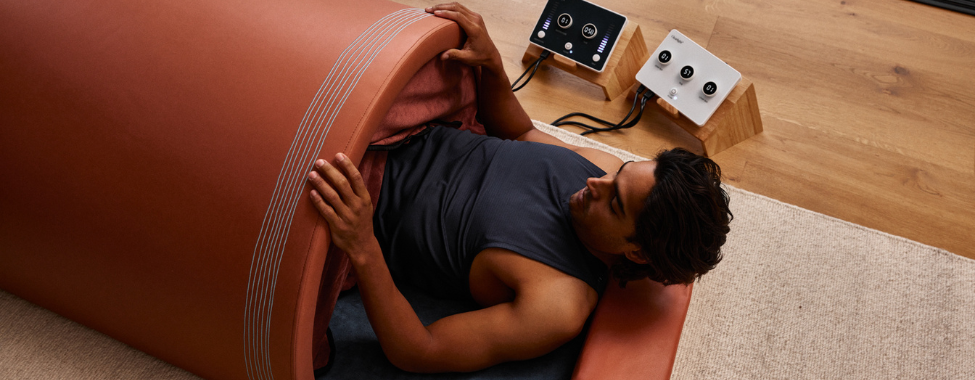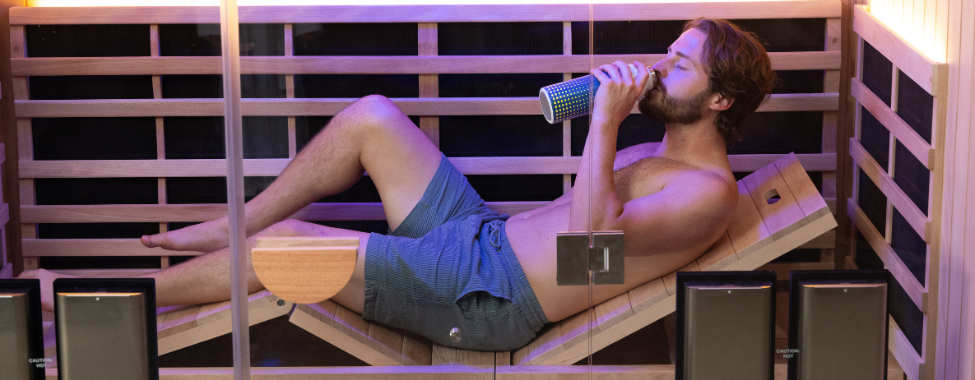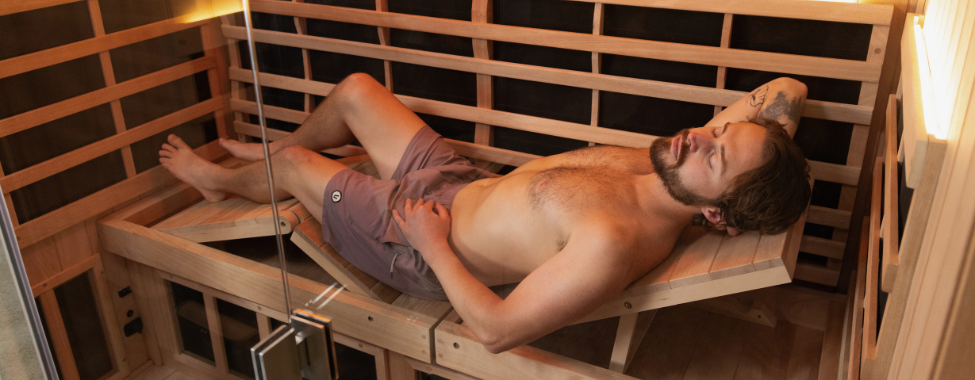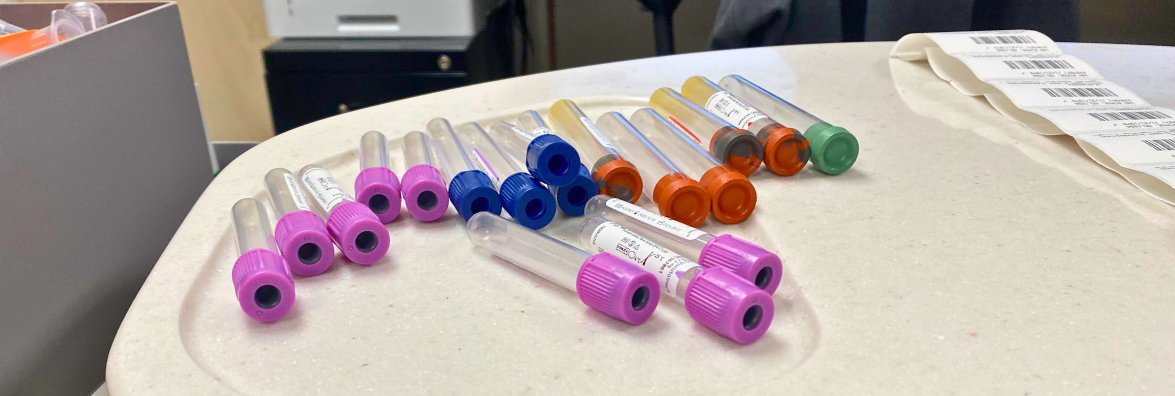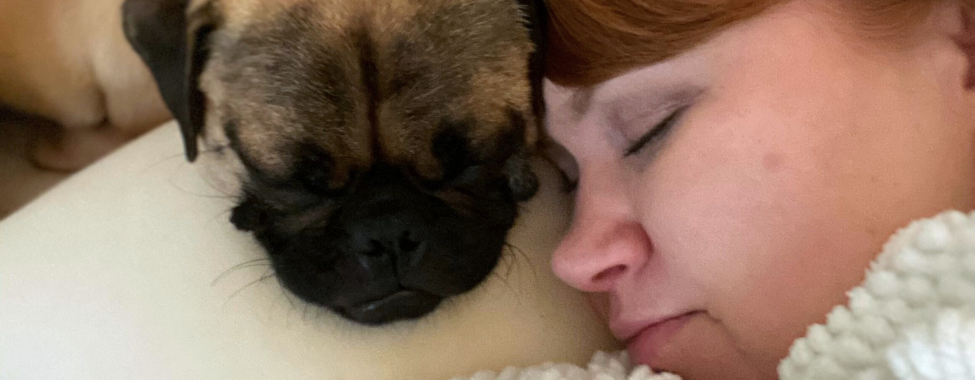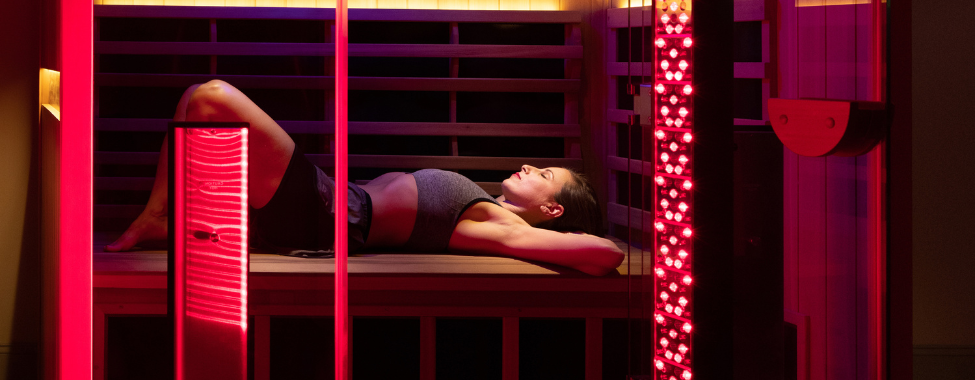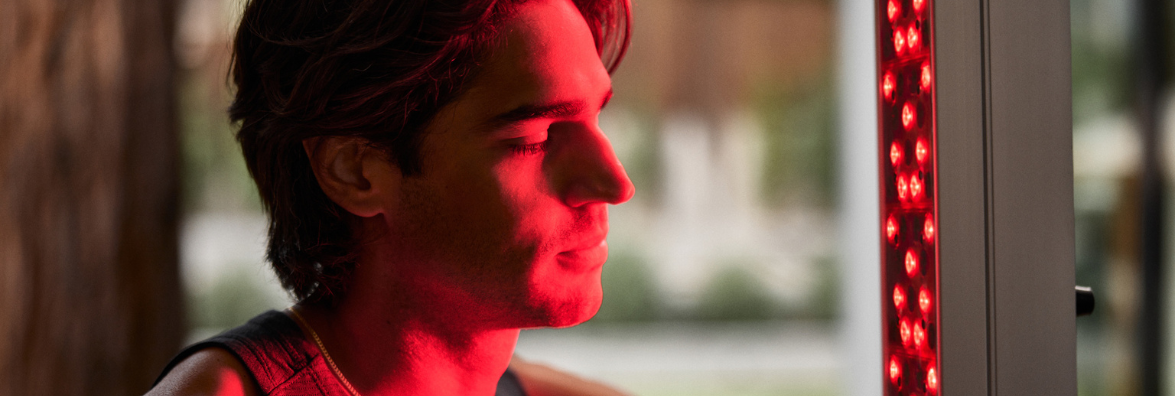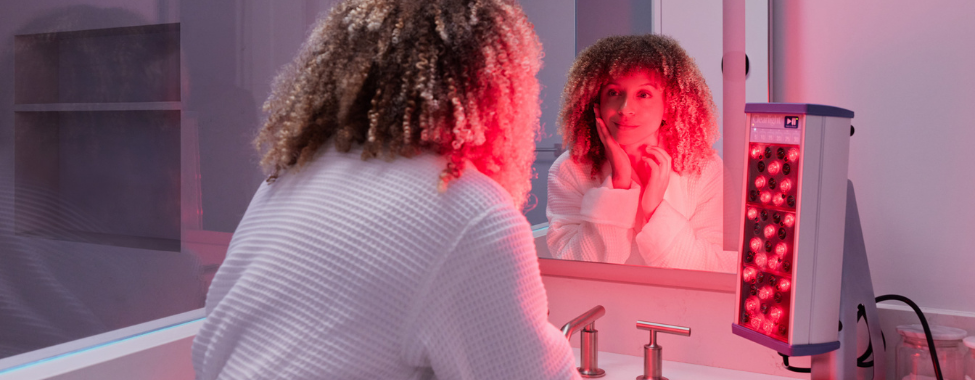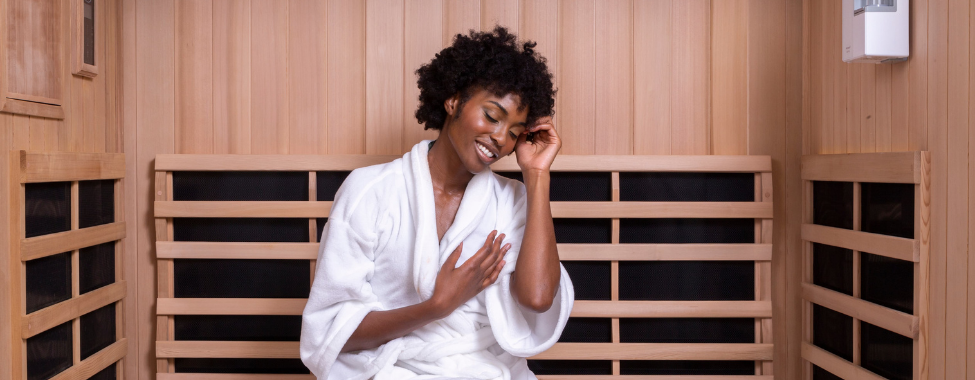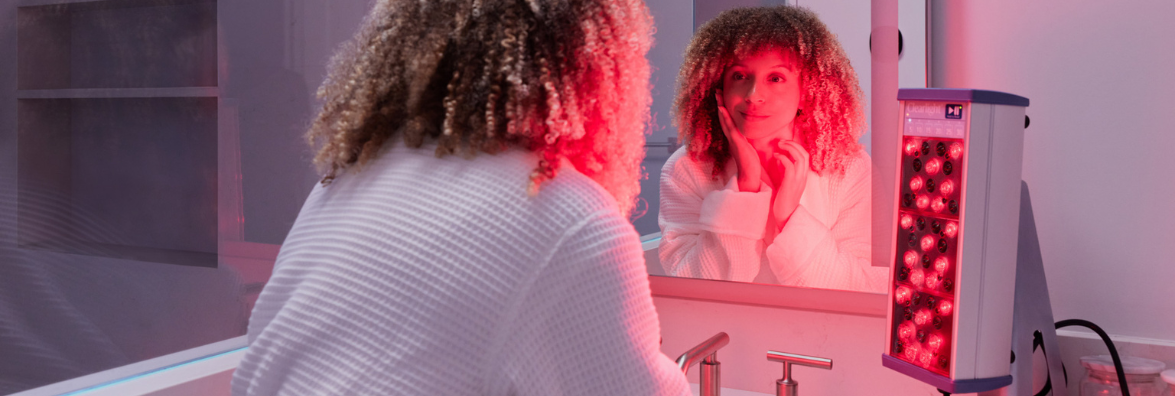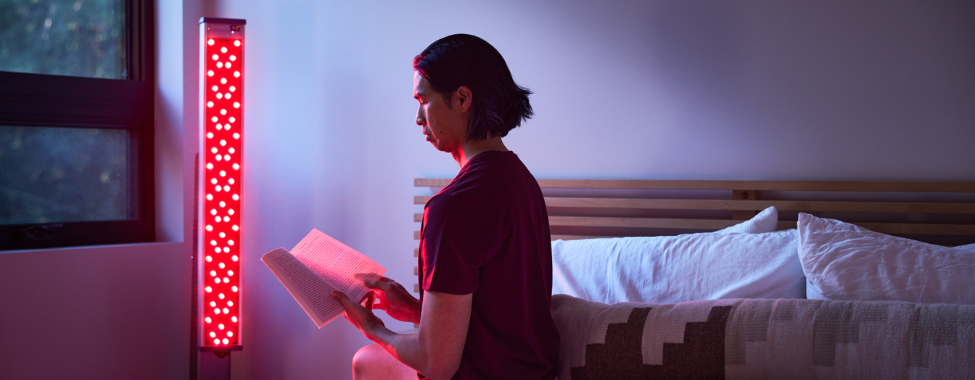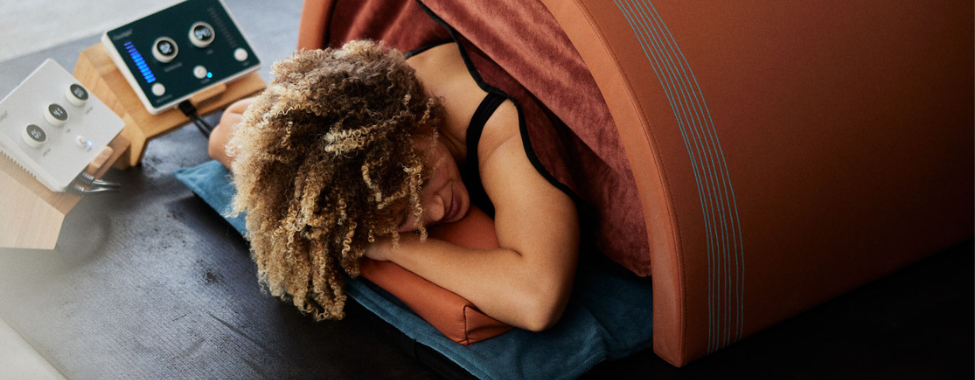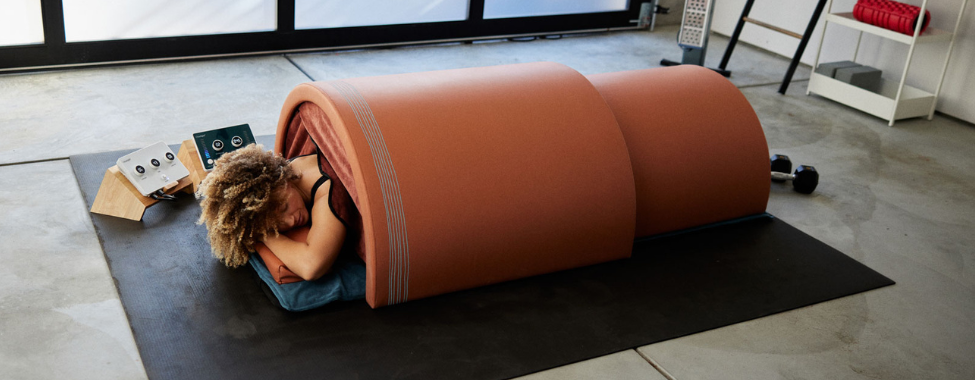Summer is the perfect season to revitalize your health – mind, body, and soul. With longer days, more sunshine, and fresh energy in the air, it’s the ideal time to take on a 30-day challenge that nurtures holistic wellness. Each day offers one achievable goal focused on physical fitness, mental clarity, and natural therapies to help you thrive all season long.
Summer Challenge Week 1: Hydration, Heat & Healing
Day 1: Infrared Sauna Session
Boost your body’s detoxification process with a 30-minute infrared sauna session. Infrared heat penetrates deeper into your tissues, helping flush toxins, ease muscle soreness, reduce inflammation, and promote healthy circulation. It may also improve sleep and skin clarity over time with continued use. Don’t forget to hydrate before and after!
Day 2: Hydrate Like a Pro
Cut all sugary drinks, coffee, and alcohol today. Focus solely on drinking water to support your metabolism, digestion, and brain function. Staying hydrated is essential for regulating body temperature, improving skin, and promoting energy – especially during hot summer months. Aim to drink at least half your body weight in ounces.
Day 3: Breathwork + Aromatherapy
Take 10 minutes to focus on intentional breathing paired with calming essential oils in an aromatherapy diffuser. Use lavender or frankincense to relax, or citrus to boost your mood. Deep, mindful breathing can reduce stress, lower blood pressure, and improve mental clarity. Inhale slowly for four counts, hold for four, exhale for four.
Day 4: Try PEMF Therapy
Give your body a cellular-level recharge with pulsed electromagnetic field (PEMF) therapy. Just 10–20 minutes can stimulate natural healing and improve recovery. PEMF works by restoring the electrical charge in your cells, supporting better sleep, energy, and pain relief. It’s especially helpful if you’re feeling sore or run-down.
Day 5: Go Sugar-Free for a Day
Today, eliminate all added sugars from your diet. Skip desserts, soda, and processed foods. Focus on whole foods like vegetables, lean proteins, and naturally sweet fruit. This mini sugar detox will help stabilize your mood, reduce inflammation, and support clearer thinking. You might even notice fewer cravings and more balanced energy.
Day 6: Stretch + Chromotherapy
Start your morning with 15 minutes of gentle stretching under colored LED light. Use red for energy, blue for calm, or green for balance. Chromotherapy enhances mood and supports your body’s natural rhythms, while stretching improves flexibility and circulation. Breathe deeply through each pose and set an intention for the day.
Day 7: Cold Plunge or Contrast Therapy
Experience the rejuvenating effects of contrast therapy by alternating heat and cold. Try an infrared sauna followed by a cold plunge, dip in the pool, or shower. This improves circulation, reduces muscle soreness, and supports lymphatic drainage. It’s invigorating and refreshing – perfect for resetting after a long week.

Summer Challenge Week 2: Reset Routines & Move Your Body
Day 8: Use Red Light Therapy
Spend 10–20 minutes under red light to boost cellular energy, reduce inflammation, and support collagen production. Red light therapy is great for skin health, recovery, and even better sleep. Pair with quiet time or breathwork to maximize mental benefits while your body recharges beneath the glow.
Day 9: 10,000 Steps Challenge
Aim for 10,000 steps today – whether through a long walk, hike, or errands on foot. It’s a simple, effective way to boost your cardiovascular health, metabolism, and mood. Bring a podcast or upbeat playlist to keep it fun. This low-impact movement helps reduce stress while supporting your summer fitness goals in an easy, sustainable way.
Day 10: Try a New Fitness Class
Step outside your routine and try something new – boxing, barre, aerial yoga, or even a beach bootcamp. Engaging new muscle groups and breaking monotony helps keep fitness fun and effective. You may discover a new favorite workout that challenges your body and refreshes your motivation. Invite a friend for added fun and accountability.
Day 11: Home-Cooked Clean Eating
Make all your meals at home using whole, unprocessed ingredients. Focus on colorful vegetables, lean proteins, and healthy fats. Cooking empowers you to control ingredients, portion sizes, and nutrition. Try prepping a new dish or batch-cooking for the week ahead. Clean eating helps with digestion, energy levels, and long-term healthy habits.
Day 12: Try Halotherapy (Salt Therapy)
Relax with a halotherapy device to enjoy respiratory and skin benefits. Microparticles of salt help clear airways, reduce inflammation, and calm your nervous system. It’s a meditative, spa-like experience that supports immunity and stress reduction. Great for seasonal allergies or simply creating a moment of restorative calm.
Day 13: Dance Party Workout
Turn up your favorite feel-good playlist and dance freely for 20–30 minutes. It’s cardio, mood-boosting, and totally fun. Dancing releases endorphins, boosts brain function, and improves coordination—no choreography needed. It’s one of the most joyful ways to get moving. Solo or with others, let your body flow to the beat.
Day 14: Mindful Morning Routine
Begin your day without screens. Instead, hydrate, stretch, and set an intention. Read, journal, or meditate before checking notifications. A mindful start promotes clarity, lowers anxiety, and boosts productivity. Creating space in your morning can ripple positively throughout your day, making it easier to stay balanced and present all summer.

Summer Challenge Week 3: Restore, Recenter, Rejuvenate
Day 15: Yoga + PEMF Therapy
Practice 30 minutes of gentle yoga directly on a PEMF mat. The mat delivers low-frequency waves that enhance cellular repair and circulation as you move. Flow through your poses while your body receives subtle energy support – perfect for grounding, recovery, and restoring balance from the inside out.
Day 16: Gratitude Journaling
Halfway through your summer challenge, write down 10 things you’re grateful for today. Focusing on the positive shifts your mindset and strengthens emotional resilience. Gratitude journaling is simple, powerful, and proven to reduce stress. Whether it’s a small win, a relationship, or even your morning coffee, take a moment to reflect.
Day 16: Digital Detox
Unplug for the day – or at least several hours. Step away from social media and screens to reduce overstimulation. Instead, journal, walk, read, or connect in person. This mental reset lowers anxiety, restores focus, and helps you become more present. You’ll be surprised how refreshed and reconnected you feel with just a little digital silence.
Day 18: Spa Night at Home
Treat yourself to a personal spa experience. Use a face mask, take an Epsom salt bath, and follow it with an infrared sauna session or calming tea. Add candles or essential oils for ambiance. This self-care ritual relaxes muscles, nourishes your skin, and calms your mind – perfect for de-stressing mid-challenge and restoring a sense of balance.
Day 19: Declutter a Space
Pick one small area like your nightstand, closet, or desk, and tidy it. Clearing physical clutter helps reduce mental clutter too. A refreshed space supports better focus, lower stress, and a feeling of accomplishment. You’ll feel lighter, more productive, and proud of your progress.
Day 20: Fast for 16 Hours
Try a 16:8 intermittent fast today. Choose an eight-hour eating window and fast the rest. This gentle digestive reset supports metabolism, cellular repair, and insulin sensitivity. Most people fast overnight and eat from noon to 8 PM. Drink water, herbal tea, or black coffee while fasting. Listen to your body and break your fast mindfully.
Day 21: Nature Time
Spend at least 45 minutes outside today. Go for a nature walk, sit in the sun, or explore a nearby park. Fresh air and green space reduce stress, improve mood, and support circadian rhythms. Sunshine helps produce vitamin D, important for immunity and energy. Nature naturally resets your mental and emotional state, grounding you fully.

Summer Challenge Week 4: Inner Peace & Sustainable Habits
Day 22: Meditate for 15 Minutes
Set aside quiet time to meditate, using an app or simply focusing on your breath. Meditation lowers stress, improves concentration, and brings emotional clarity. Even short sessions help reset your nervous system. Find a peaceful spot, use some essential oils, close your eyes, and let your thoughts settle.
Day 23: Try a New Healthy Recipe
Cook something nourishing and new today, like a superfood smoothie bowl, grilled veggie tacos, or salmon with citrus-herb glaze. Trying new recipes keeps eating clean exciting and encourages better habits. Focus on whole foods and vibrant ingredients.
Day 24: Connect with a Loved One
Call, text, or meet up with someone meaningful. Social connection supports longevity, reduces anxiety, and improves mood. Even a short conversation can lift both your spirits. Make time to laugh, reminisce, or simply check in. Nurturing relationships is a key component of emotional wellness and can be just as healing as any therapy.
Day 25: Walk Instead of Drive
Swap one short trip today, like a coffee run or grocery stop, for a walk or bike ride. This light movement boosts circulation, burns calories, and reconnects you with your surroundings. Walking also supports mental clarity and heart health. Small lifestyle swaps like this add up and make daily activity a natural part of your routine.
Day 26: Pick Up a New Hobby
Hobbies are a great way to pass the time and keep your mind active. Summer is the perfect time to challenge yourself with learning new things. Try picking up painting, writing, baking, completing puzzles, or whatever sparks your interest. And who cares if you aren’t great at it? Practice makes perfect.
Day 27: Sauna After a Workout
Follow your workout with an infrared sauna session. It promotes faster muscle recovery, detoxification, and stress relief. Infrared heat also helps increase circulation and relaxes your body post-exercise. Bring water, a towel, and sit for 20–30 minutes. This powerful combo amplifies results, reduces soreness, and boosts post-workout satisfaction.
Day 28: Random Act of Kindness
Do something kind for someone else today – a compliment, a small gift, or a helpful gesture. Kindness boosts oxytocin, improves mood, and creates a ripple effect of positivity. It doesn’t need to be big to make an impact. The joy of making someone’s day will uplift your own and strengthen your connection to community.
Day 29: Read a Book
Reading allows you to have an escape from your day-to-day reality. From reading to educate yourself to reading for entertainment, this mental health activity can work your mind in a variety of ways. Set aside at least 30 minutes and set up in a cozy spot so you can turn some pages peacefully.
Day 30: Reflect + Set Intentions
You’ve made it! Reflect on your 30-day journey. What felt best? What habits do you want to carry forward? Journal your wins, insights, and three wellness intentions for the rest of summer. Use this momentum to build a lifestyle that supports long-term vitality. You’ve done the work, now enjoy how it transforms your life.

Additional Summer Wellness Tips
Your wellness journey doesn’t have to end on Day 30 – in fact, this is just the beginning. Whether you’re glowing from red light therapy, feeling stronger from daily movement, or mentally recharged from mindful mornings, the habits you’ve built over the past month can form the foundation for a lifestyle of balance, vitality, and joy.
- Have an accountability partner who can check in on you and make sure you are on the right track with your summer health challenge. Doing the challenge with friends also helps add fun and accountability.
- Track your progress to monitor how you are feeling and track your successes with summer health.
- Set small, attainable goals that will keep you motivated and continually push you forward.
- Find healthy lifestyle substitutions such as walking instead of driving short distances, replacing soda with water, and switching out processed foods for clean foods.
- Develop a daily routine to help optimize your day and get you into a rhythm that makes life more manageable and peaceful.
This summer, you’ve taken meaningful steps toward better health. Let this 30-day challenge be your launchpad for year-round wellness. Whether you’re embracing sunlight, sweating it out in a sauna, or simply pausing to breathe deeply, each mindful act adds up. With consistency, self-compassion, and a clear sense of purpose, you can continue to thrive long after summer ends.
 Canada
Canada Australia
Australia New Zealand
New Zealand Germany
Germany UK
UK EU
EU Ireland
Ireland Malaysia
Malaysia China
China Japan
Japan

